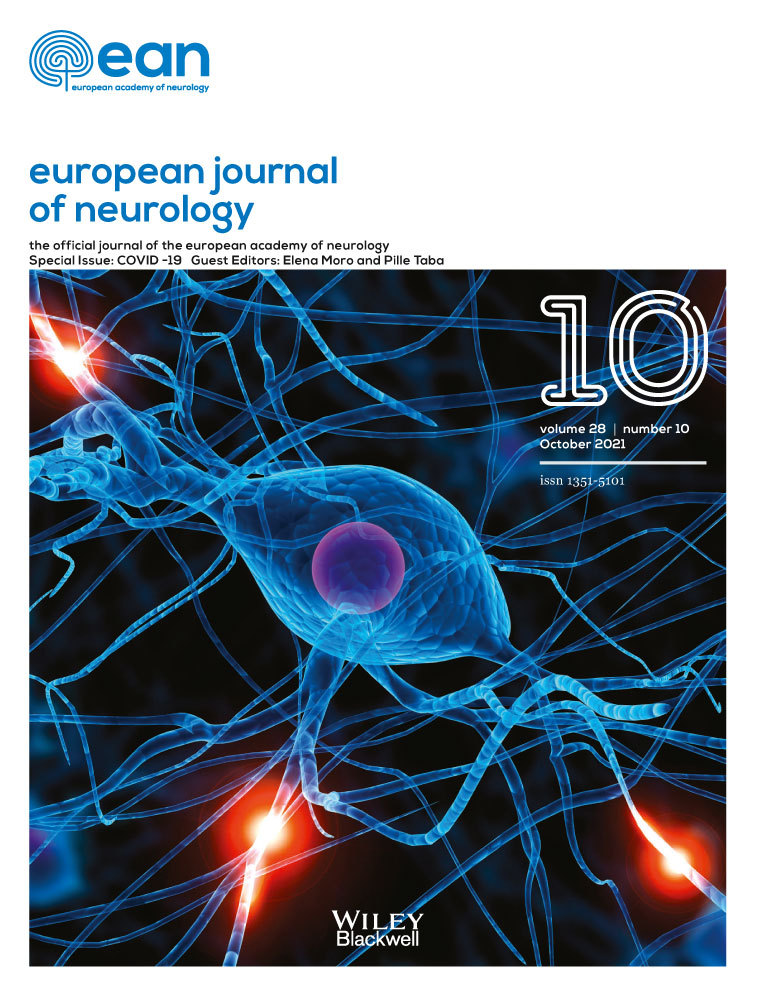Perceived stress and social support in a large population of people with multiple sclerosis recruited online through the COVID-19 pandemic
Abstract
Background and purpose
The COVID-19 emergency may cause post-traumatic stress disorder (PTSD), and with regard to people with MS (pwMS) chronic exposure to a wide range of challenging life events has been shown to be correlated with worsening of neurological symptoms, increased lesion burden on brain magnetic resonance imaging and relapses. The aim was to investigate perceived stress, depression, perceived social support, habits and behaviour changes in pwMS through COVID-19 in comparison to a control group.
Methods
A web-based survey was posted on SMsocialnetwork.com to investigate perceived stress (using the Perceived Stress Scale), depression (with Patient Health Questionnaire 2) and perceived social support (using Social Provision Scale 10 item) in pwMS and a control group through the COVID-19 pandemic. A secondary group of people with migraine was investigated.
Results
In all, 1286 answers from 612 pwMS and 674 control people were included in the final analysis. The answers from 318 people with migraine were included for a secondary analysis. A higher proportion of pwMS were depressed (43.1% vs. 23.1%; p < 0.001), had a high level of perceived stress (58% vs. 39.8%; p < 0.001) and felt significantly less social support (median 33 vs. 35; Q1–Q3 28–36 vs. 32–37; p < 0.001) compared to the control group. A higher percentage of people with migraine were depressed (50% vs. 43%, p = 0.04) compared to pwMS.
Conclusions
Considering the negative impact that prolonged stress may have on clinical and radiological disease activity of pwMS, and bearing in mind that a beneficial effect has been demonstrated and achieved with stress management, it is suggested to promote stress control in these patients during the COVID-19 pandemic.
Open Research
DATA AVAILABILITY STATEMENT
The data that support the findings of this study are available from the corresponding author upon reasonable request.




